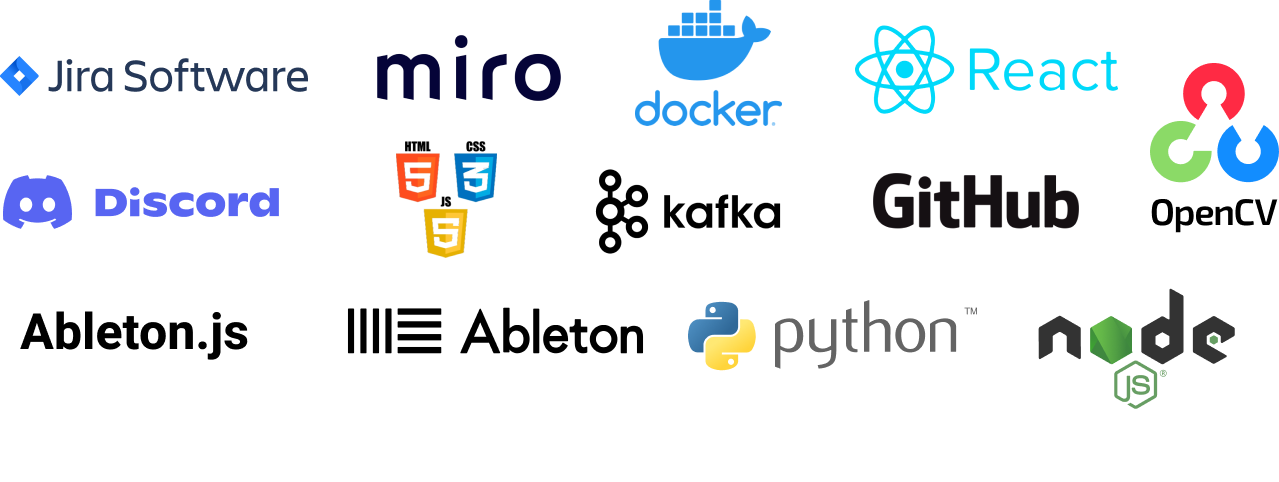
Jira
Jira helped to keep our tasks in order and who is doing what regarding creating our concept or the software.
Discord
With Discord, we had a constant flow of communication. It offers either text- or voice-channels.
Miro
Miro helped us to collect and order our ideas concerning the project to sort our thoughts.
GitHub
We shared our codes with the help of GitHub, it made it possible to work on the project simultaneously.
Kafka und Docker
We wanted to avoid as many problems as we could that concerned the installation of tools that required certain configurations. We decided to use Docker to operate our Kafka-instance, which is responsible for the connectivity between the Python and the Node.js application.
Python und OpenCV
Our first step was to choose a Framework that should help us to recognize objects. Because we had little experience with the topic of Computer Vision, we had to research first in order to go on. We found OpenCV, which offers two language options. It was either Python or C++. We decided to work with OpenCV Python because the Raspberry Pi supports Python natively and that makes it easier to create and install apps. Python is easy to learn due to its minimalistic syntax and is very popular among programmers.
Node.js
Our analyzed data, which is received from the Raspberry PI, is the most important part which is used in our project. We had to choose between Node.js or Java. Because Node.js is lightweight and saves resources in comparison to Java, we chose Node.js.
Ableton live
Ableton Live is a Sequencer software, which allows you to produce music. It is possible with the help of plugins to create your own applications and manipulate your creations.
Ableton.js
AbletonJS is an API that connects with the Ableton Live Sequencer. To manipulate a live session you can send commands with the help of JavaScript.
React
We used React to develop the User Interface. You can draw the “Area of interest” on it so if someone walks on the named area, the app will react.
JavaScript, HTML, CSS
It is the basic building blocks for Node.js, AbletonJS and the react-frontend.